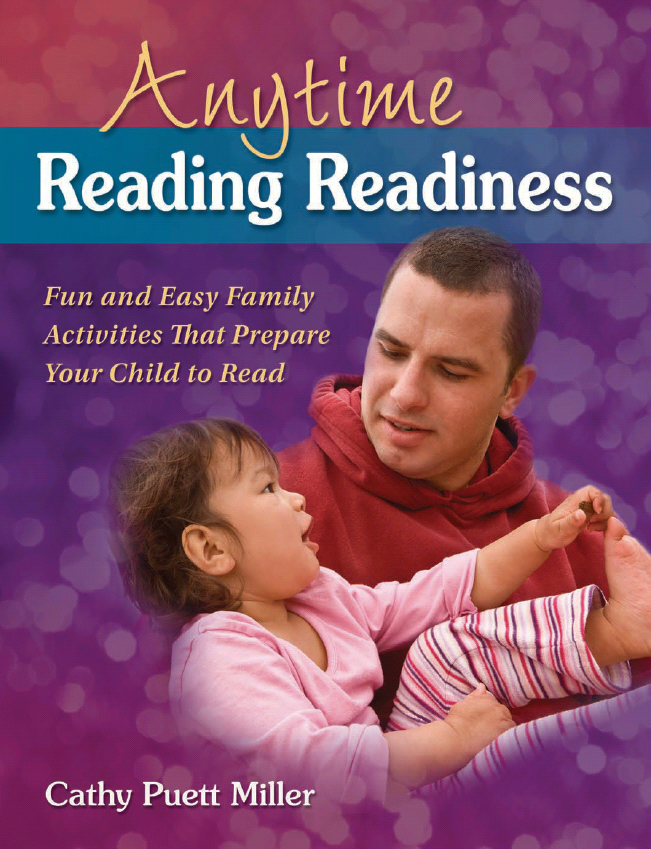 Your young child gets ready to read every minute of the day by interacting with you: his first and best teacher. You can make the most of those minutes at home, during chores, or in the car without stress, fuss, or pushing your child. You know your child best, and you realize that these pre-kindergarten years are extraordinary. You begin to prepare a child to read by regularly engaging in three core activities you already do with your toddler or preschool child: you engage in great conversations, you engage him in read-alouds, and you build his ability to listen and hear sounds.
Your young child gets ready to read every minute of the day by interacting with you: his first and best teacher. You can make the most of those minutes at home, during chores, or in the car without stress, fuss, or pushing your child. You know your child best, and you realize that these pre-kindergarten years are extraordinary. You begin to prepare a child to read by regularly engaging in three core activities you already do with your toddler or preschool child: you engage in great conversations, you engage him in read-alouds, and you build his ability to listen and hear sounds.
Preschoolers learn best through play. Learning happens everywhere in your child’s life, and play is the optimum learning environment for a preschooler. Learning at this age should not look or feel “academic.” No isolated drills or mindless repetition, please! I know that’s a relief for many of you to hear. The truth is that conversation and an interactive approach are best—and the most natural.
At home, avoid flashcard drills or boring worksheets. Keep an activity going for the length of your child’s attention span (one to three minutes per year of age)—and no longer. If language and thinking (recognizing, interpreting, judging, and reasoning) are developed through activities that fit your child’s age, he will quickly pick up what he should do if presented with worksheets or flashcards in kindergarten and first grade.
Remember that play is the preschooler’s primary way to learn. Routine, consistency, repetition, and positive fun experiences are most important.
Oral language foundations make the difference. Oral language heard in stories, conversation, or in listening creates a strong foundation for later reading. Talking gives your child a first taste of what reading is. They learn in a very special way what the essence of reading is without having to worry about “how to do it.”
Children surrounded by daily, rich oral literacy experiences very often come to “reading” with more background knowledge and vocabulary, as well as a broader understanding of the world. When we read aloud to a child and talk about what’s going on in our brain while we read (and about what we will do as a result of reading) those squiggles on the page, we make that connection clear. By the time they reach school, they have had many positive experiences with books and with someone who loves them. They are much more likely to learn to read easily when the time is right than children who do not have that solid foundation.
A strong oral language foundation influences your child’s attitude about reading, too. Varied oral language experiences build a positive attitude about reading, which is just as important as the act of reading itself. Before he can read a single word, a child with a strong oral foundation is motivated to read. The aim of everyone who picks up a book to read to a child must be to foster a positive feeling about books and reading.
Nurture children’s natural curiosity, and make reading such a positive experience that they feel they must come back for more.

